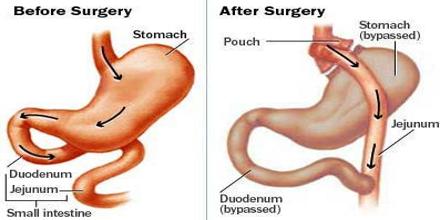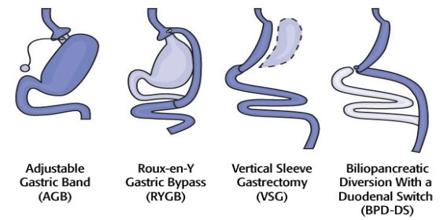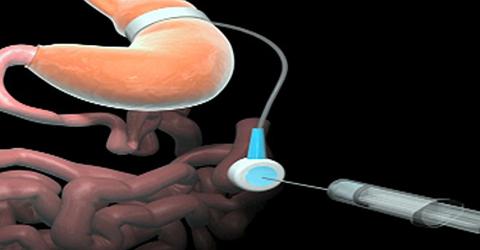Bariatric surgery is used to care for people who are severely obese. Gastric bypass and other weight-loss surgeries make changes to your digestive organism to help you lose weight by preventive how much you can eat or by reducing the amalgamation of nutrients, or both. It is a surgery that is intended to lead to weight loss. There are actually four diverse types of bariatric surgical measures that can be done to help patients attain weight loss.
Potentially life-threatening obesity is defined as:
- having a body mass index (BMI) of 40 or above
- having a BMI of 35 or above and having another serious health condition that could be improved if you lose weight, such as type 2 diabetes or high blood pressure
Adults who have recently been diagnosed with type 2 diabetes may also be considered for an assessment for weight loss surgery if they have a BMI of 30-34.9.
For people who meet the above criteria, weight loss surgery has proved to be effectual in radically and rapidly reducing excess body fat.

Types
There are two basic types of bariatric surgery – restrictive surgeries and malabsorptive / restrictive surgeries.
Restrictive surgeries work by bodily restricting the size of the stomach and slowing down digestion. Malabsorptive/restrictive surgeries are more invasive surgeries that, in addition to restricting the size of the stomach, physically remove parts of the digestive tract, interfering with absorption of calories.
Types of Bariatric Surgery
There are different types of bariatric surgeries that can be performed. Surgery may be performed using an “open” approach, which involves cutting open the abdomen or by means of laparoscopy, during which surgical instruments are guided into the abdomen through small half-inch incisions.
There are four types of operations that are offered:
- Adjustable gastric banding (AGB)
- Roux-en-Y gastric bypass (RYGB)
- Biliopancreatic diversion with a duodenal switch (BPD-DS)
- Vertical sleeve gastrectomy (VSG)

Bariatric Surgery Procedures
Bariatric surgical actions cause weight loss by restricting the amount of food the stomach can hold, causing malabsorption of nutrients, or by a combination of both gastric restriction and malabsorption. Bariatric procedures also often cause hormonal changes. Most weight loss surgeries nowadays are performed using minimally invasive techniques (laparoscopic surgery).
The most general bariatric surgery procedures are gastric bypass, sleeve gastrectomy, adjustable gastric band, and biliopancreatic diversion with duodenal switch. Each surgery has its own advantages and disadvantages.
Conclusion
Weight loss surgery also called bariatric surgery, helps people with tremendous obesity to lose weight. It may be an alternative if you cannot lose weight through diet and work out or have serious health problems caused by obesity. Bariatric surgery may be an option if you have stern obesity and have not been able to lose weight or keep from gaining back any weight you lost using other methods such as lifestyle treatment or medications.
















